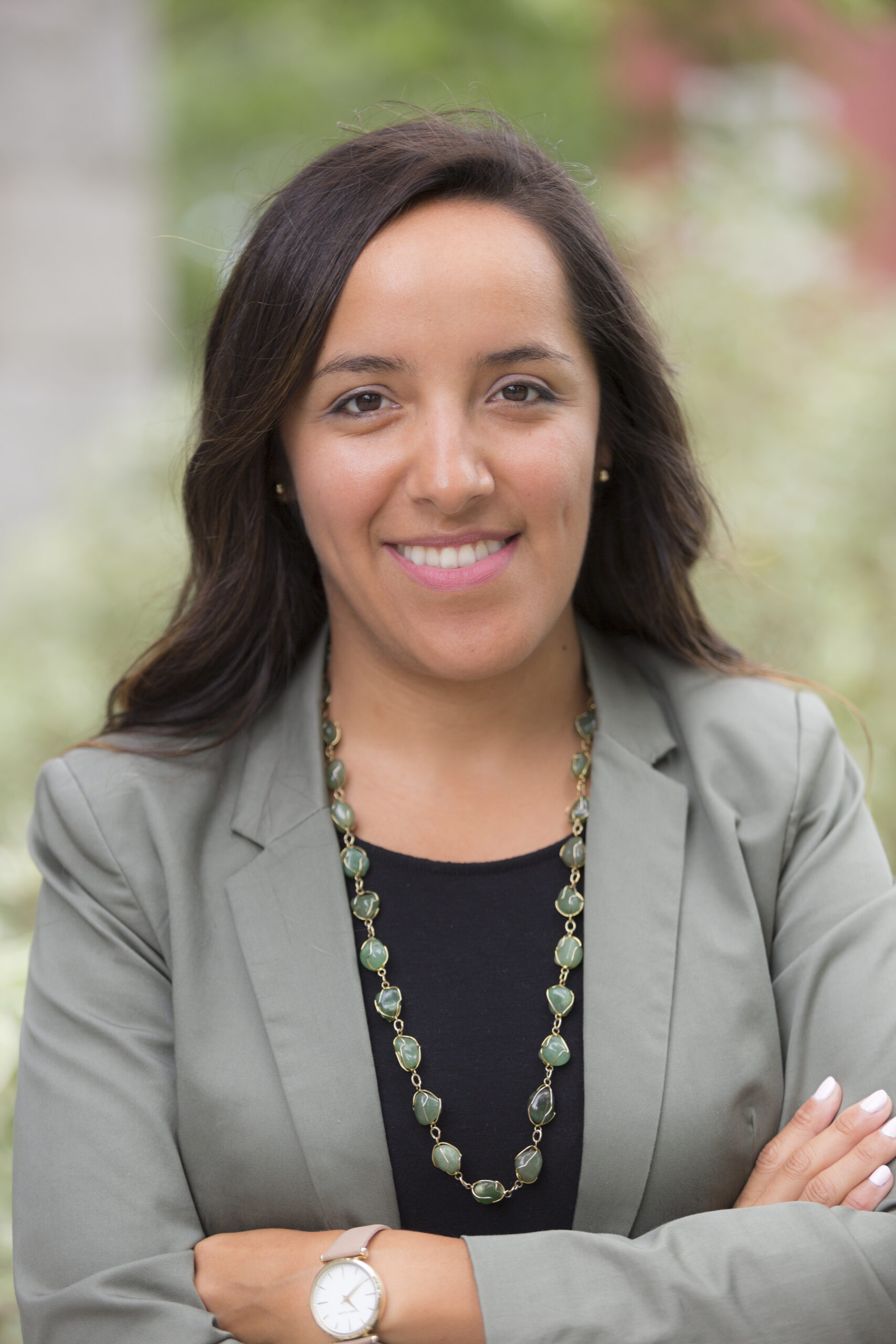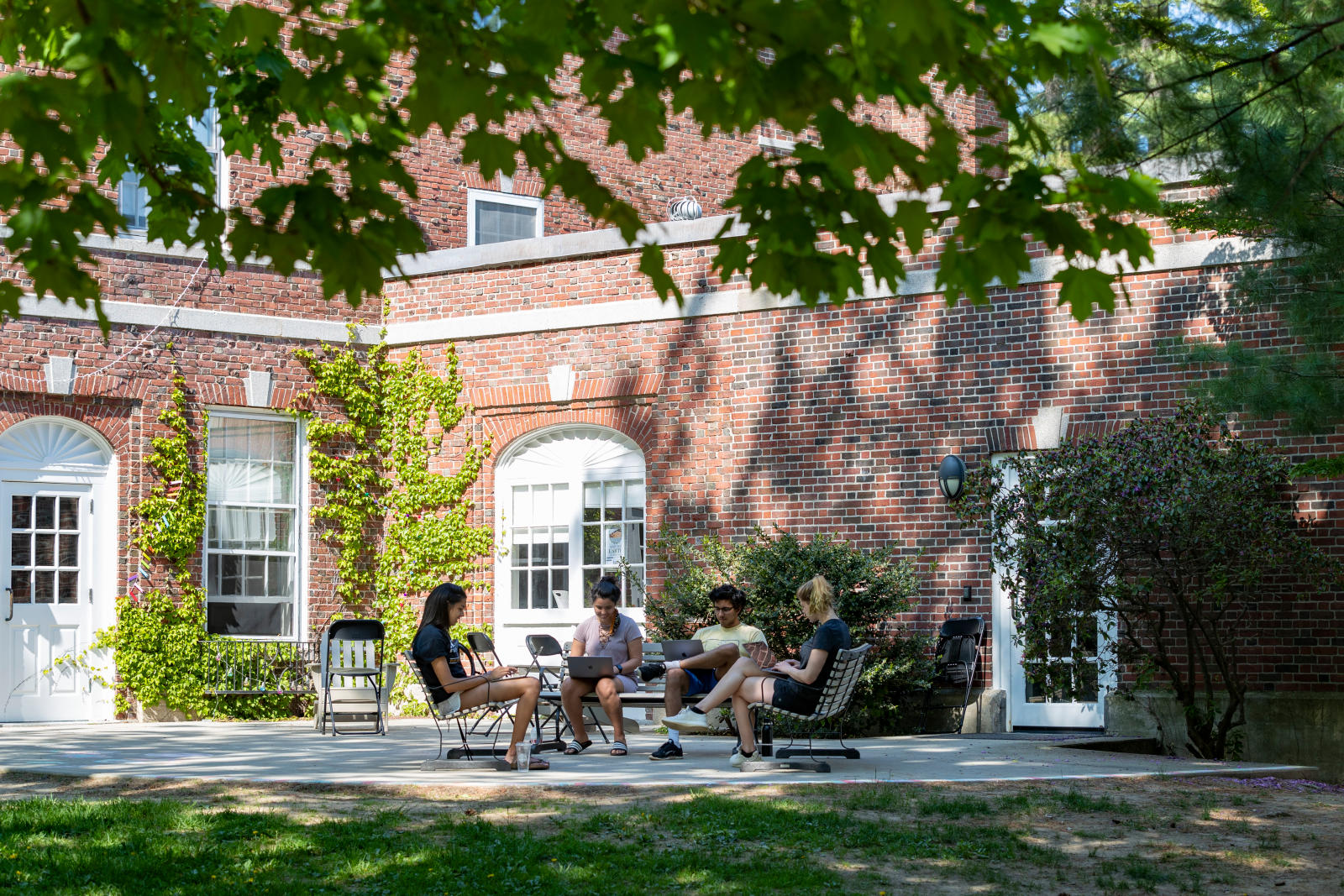Bowdoin College and other highly selective institutions have access to resources that other colleges may not have, including enormous endowments and robust financial support from alumni. Claudia Marroquin, senior vice president and dean of admissions and student aid, admits, “What we’re able to do on our campus puts us certainly in a different group.”
At the same time, Bowdoin has been very generous in helping students in need for more than half a century. It eliminated loans for those receiving financial aid 14 years ago. Students who do earn scholarships receive more than $56,000 in aid on average. And it was the first in the nation to go test-optional in 1969. It could easily stop there—with 2,000 students, its pool is not expansive, and its applications outnumber available spots 16 to 1—and yet, it is still searching for ways to be more equitable, more affordable and more diverse while expanding its reach.
So, Bowdoin announced last month it was becoming the seventh institution in the country to offer need-blind admission to its international students. The others are also in the same class—Harvard, Dartmouth, Princeton, Yale, Amherst and MIT. President Clayton Rose said the effort was twofold: to create further access and to make Bowdoin that much more affordable.
“The President asked every division to really look at policies that we have that might not be equitable,” Marroquin said. “One of the things that really stood out was the different scrutiny that we put our international students through in the application and review process. Talented students exist across the economic spectrum. It is our job to make sure we are finding those students and providing that opportunity. Thankfully, our board and our finances are such that we were able to make that change to be need blind. An education like Bowdoin’s should be accessible to students, regardless of their financial background and their citizenship.”
Working for students

Because of stringent COVID-19 policies enacted during the pandemic in an effort to remain open, Bowdoin saw a slight reduction in the number of international students, down to around 140 that are visa holders, or a little more than 7% of its population, from 54 countries. There are another 5% that have an international background, such as dual citizenship holders or those that have been educated abroad. Bowdoin felt the time was right to put a need-blind policy into action.
“The pandemic put a jolt in our international students, especially with the ability to acquire visas and entry into the country,” Marroquin says. “This latest policy makes Bowdoin’s message clear: We welcome the world’s most talented students, regardless of background, and we are doing all we can to support students from admission to graduation.”
Marroquin knows first-hand the power of a Bowdoin education and its benevolence. An immigrant from Guatemala, she grew up in the Koreatown neighborhood of Los Angeles before applying and being accepted to the college. A rugby player, she majored in history and received many opportunities she never dreamed of. Over the past decade, she has worked in admissions, fighting hard for others like her, including those from underserved areas and other nations.
“I was a first-generation college student and came from a low-income background. The financial aid that I received really changed the trajectory of opportunities and experiences I’ve had,” she says. “So I keep that centered when we think about the work we do. It’s important to make sure that they can experience this place like their peers and are hopefully not making trade-offs. And making sure that they’re taking advantage of the opportunities that we know are going to open doors for them later on.”
All Bowdoin students, for example, receive Apple MacBooks, iPads and Pencils to ensure that they have access to the same equipment as their peers and can collaborate with them. Bowdoin also for many years has provided winter clothing and boots to students who need it, especially those who may be arriving from other nations or other parts of the U.S. who are not prepared to take on the harsh Maine winters. Through its THRIVE program, which was funded from a donation from Netflix founder Reed Hastings and includes Scholars and Science programs, first-gen and low-income students have a community to get peer guidance and academic help.

Perhaps the most important element in being able to deliver to students in need is how this liberal arts college is adjusting and tailoring its curriculum to better serve them. “Every department is looking at the ways that we operate and the policies we have to continue to be a relevant institution and to serve the students who are calling this place their home,” she says.
Although pandemic protocols remain a roadblock to access in some nations, remote learning capabilities and a more accepting environment here in the U.S. around COVID are allowing for institutions like Bowdoin to better deliver to international students.
“I’m really excited to be able to start to get back to some of our traditional practices of being able to travel,” she says. “We’re keeping many of our virtual offerings because we’ve learned that it allows us to have a farther reach, and especially allowing students to research colleges at their own pace. We are a campus that prides itself on the experiences our students have in the classroom, and we’re educating students to really go out into the world, to work on problems, to be leaders in all facets of the industry.”
Though Bowdoin knows well of its status in higher education, its model does offer the potential for others to replicate.
“The biggest thing for any institution, regardless of what their financial situation might look like, is trying to prioritize values,” Marroquin says. “We really look at, why are we doing this work? We recognize that we’ve done some amazing things over the years, but that doesn’t mean we can get complacent. This generation of students is facing different issues and tackling different challenges. The education has to really enable them to continue to be competitive in the marketplace and make sure that the policies we have in place align with our values.”








